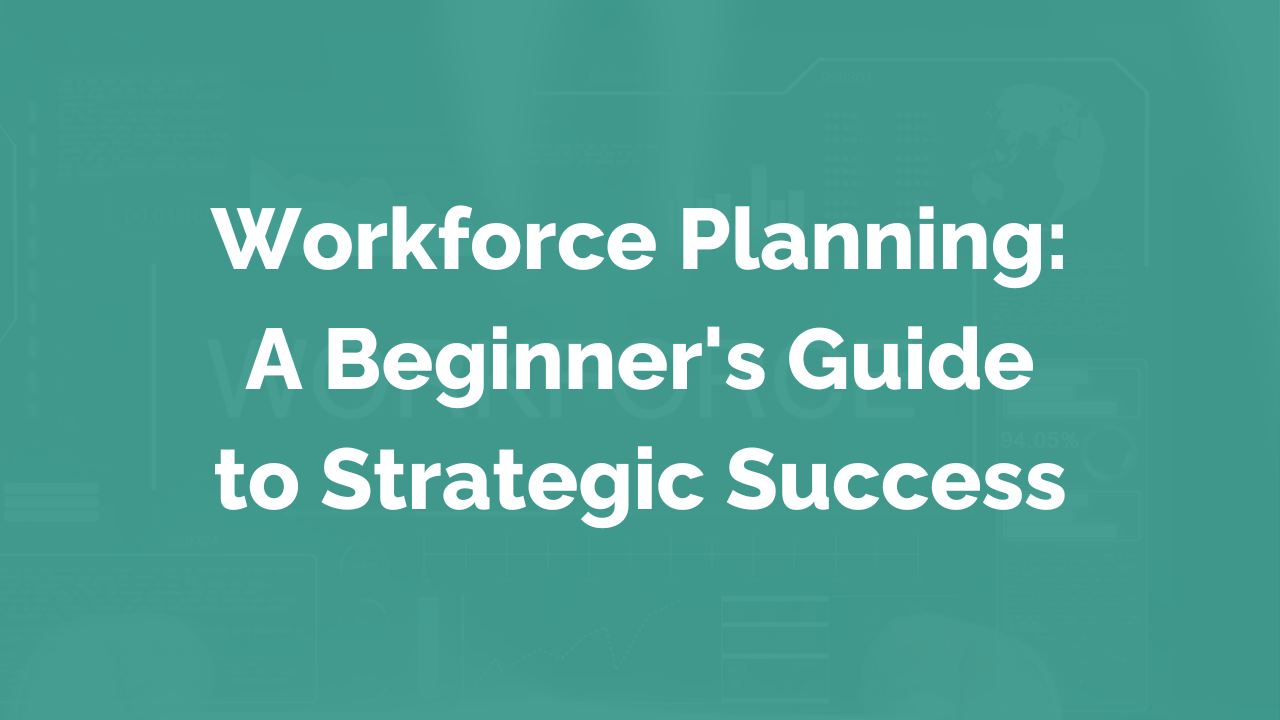In this expert interview David sits down with Dr. Lassaad Essafi, CEO of EDLIGO, during the interview they delve into the strategic importance of adopting a skills-based approach to talent management in today's rapidly changing business landscape. It highlights how focusing on skills rather than traditional role-based hiring can enhance organisational agility, competitiveness, and innovation. They also explore the tangible benefits of this approach, including improved talent deployment, enhanced retention, and increased workforce satisfaction. It also discusses how EDLIGO aids organisations in transitioning to a skills-driven model, offering personalised learning paths, competency assessments, and data-driven insights to align talent strategies with business objectives.
Read MoreAs we continue on our journey through the digital era, the influence of data in shaping business decisions and strategies continues to grow more prominent. We all know that we can’t rely solely on intuition and experience. Instead, we must continue to harness the power of data to gain valuable insights and make informed decisions.
Read MoreNew technologies are playing an increasingly important role in shaping the way organisations operate. We are seeing sales teams using AI-powered tools to improve their lead generation and customer acquisition processes, while marketing teams are leveraging data analytics and automation to optimise their campaigns and create more personalised consumer experiences.
Read MoreHigh employee engagement does not necessarily mean that employees are happy, satisfied, and motivated at work. In fact, research suggests that 18% of organisations have high engagement along high turnover. This raises the pertinent questions: Are we really listening to our employees? Are we creating workforce experiences that truly resonate with them? Or are we just focused on creating a facade of engagement?
Read MoreThe concept of culture varies depending on who you ask, but one thing remains true—organisational culture is a key factor in any company's success and sustainability.
Read MoreNo organisation can build a sustainable, successful people analytics function without clear understanding of what it should and shouldn’t do. Data ethics is the compass for all analytics work. An Insight222 survey with 57 companies* shows the extent of the challenge: 81% of companies report that their workforce analytics projects were sometimes or often jeopardised by data ethics/privacy concerns. In this post, Dirk Petersen reviews how organisations can ensure that they have an ethics charter in place for their People Analytics projects.
Read MoreOnce upon a time in an Australian People Analytics and Planning Consultancy, a CEO said “If you can afford to advertise and pray, then don’t bother with strategic workforce planning”. That CEO was Peter Howes, of Infohrm. While amusing at the time, it’s a poignant thought today. I am often reminded of the sentiment, as I speak with HR and business leaders about their own workforce planning efforts.
Read MoreEmployee Experience (EX) is moving from the sidelines to the core of business planning within companies, according to TI Peoples State of EX Study 2023/2024. However, there are also notable barriers leading to less than half of all companies managing their EX to the best of their abilities. The biggest issue being calculating the financial impact of EX efforts. With EX teams partnering least with finance, this is not surprising.
Read MoreAn ongoing struggle for people analytics is the translation of insights into impactful actions. As Piyush Mathur put it on the Digital HR Leaders Podcast: insight without action is just overhead. The imperative to demonstrate impact is becoming urgent, because people analytics teams have received significant investments in the past several years, often growing while the rest of HR stagnated or contracted. Making recommendations is not sufficient; impact is created through action.
Read MoreThe first North America Insight222 Peer Meeting of 2024, hosted by Colgate Palmolive, unfolded in the vibrant city of New York. It brought together people analytics professionals and industry experts for two days of insightful discussions, collaborative learning, and strategic networking.
Read More









